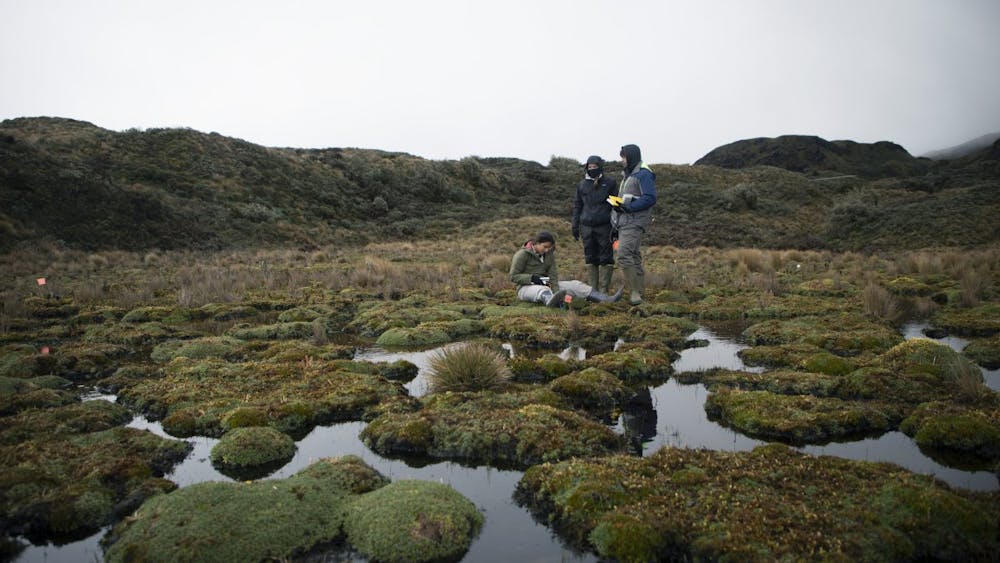This summer, four UNC undergraduate students will travel to Ecuador alongside Diego Riveros-Iregui, a professor of geography and co-director of the Center for Galapagos Studies, to conduct climate research in the Páramo, a region of the Andes Mountains.
“We want to understand how current environmental conditions — how current weather, how current changes in rainfall patterns — affect natural emissions of carbon dioxide and methane to the atmosphere,” Riveros-Iregui said.
The fieldwork will take place over the course of approximately two months and will be performed in conjunction with Universidad San Francisco de Quito. USFQ has been a strategic partner of UNC since 2006, and this project will allow students from the two universities to collaborate in a research setting.
UNC and USFQ received a grant from the 100,000 Strong in the Americas Innovation Fund, covering all living and research expenses for those participating. This funding provides the opportunity for students who would otherwise be unable to afford the hands-on experience of its kind. Currently, the applications for this program are being processed.
Krista Northup, the director of global partnerships for the Office of the Vice Provost for Global Affairs, said this grant focused on creating opportunities for student exchanges between partners in the United States and Latin America.
UNC’s Global Guarantee is the promise that global education is available to every student, which is why Northup and the team at UNC Global knew this grant was exactly the opportunity they were searching for.
“We knew right away that Diego (Riveros-Iregui) has been fostering opportunities for Carolina students to conduct research in Ecuador,” she said. “He’s been doing that for years, so when we saw this call, it just made sense to connect the dots.”
She said Riveros-Iregui has been particularly interested in providing global research opportunities for underrepresented undergraduate students, which is part of the appeal for this grant. Northup said she and her team were excited to learn about this grant because they knew it was a chance to expand mobility opportunities.
The research conducted will focus on the carbon stocks found in the Páramo, attempting to understand how environmental conditions either enhance or reduce these fluxes.



